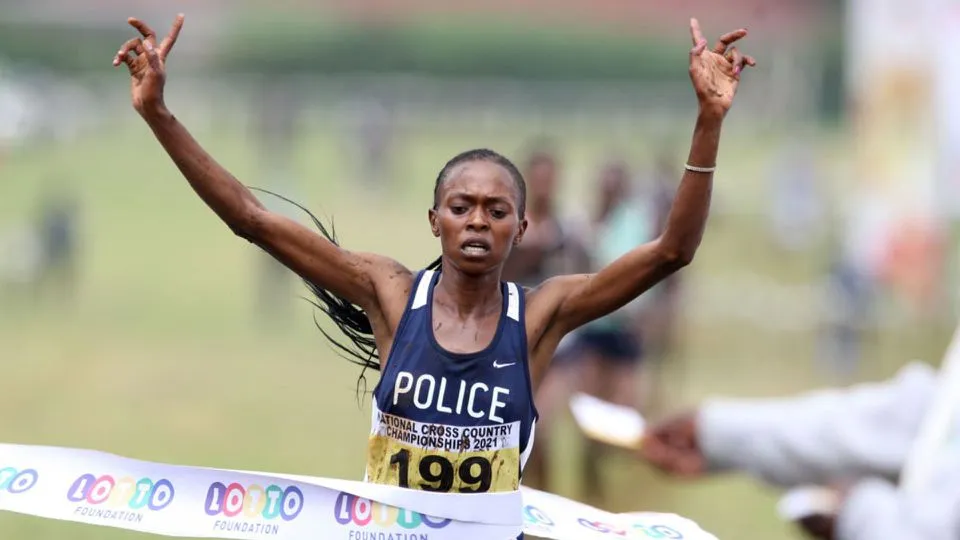When the headlines broke about the Sheila Chelangat doping suspension, the air in Kenyan athletics was thick with both disbelief and weary resignation. For years, the nation’s long-distance runners have commanded awe on the world stage, spinning stories of determination and transcending adversity. Chelangat—two-time national cross country champion and a beacon for up-and-coming stars—sat firmly in that narrative of inspiration. Now, her provisional suspension for doping has reawakened difficult conversations about the soul of athletics in Kenya and the global fight for clean sport.
The rise and abrupt fall of Sheila Chelangat
Chelangat’s story has always been one of talent honed through persistence, heartbreak, and resilience. Born in Kericho County, she emerged as a star early, claiming bronze in the 3,000m at the 2015 World Under-18 Championships and finishing sixth in the World Under-20 Championships a year later. Her breakthrough at the 2017 World Cross Country Championships in Kampala, clinching fourth, hinted at a career set to blaze new trails.
Her resurgence in 2023, crowned by victory at the Istanbul Half Marathon, saw her reclaim a place at the heart of Kenyan athletics. Early 2025 reinforced her status: second-place finishes at both the Bank of China Hong Kong-Zhuhai-Macao Bridge Half Marathon in January and the Istanbul Half Marathon in April. Within Kenya, her win at the National Police Service Cross Country title at Ngong Racecourse in January marked a return to the dominance she first showed in 2020.
The AIU’s crackdown and the shadow of EPO
The Athletics Integrity Unit (AIU), however, stands as the defining force in this current chapter. On May 22, 2025, Chelangat, at 27, was provisionally suspended after testing positive for Erythropoietin (EPO)—a synthetic hormone infamous in endurance sports circles for its ability to boost red blood cell production and supercharge oxygen delivery to muscles. While natural EPO is a product of the kidneys, aiding recovery and performance, its artificial counterpart has been widely abused by athletes for illicit gains, often at the expense of both health and fairness.
AIU officials confirmed the positive test and outlined that Chelangat, managed by Rosa Associati, has the right to request a B sample analysis. Still, her suspension is just the latest episode in a darker series for Kenya.
| CASINO | BONUS | INFO | RATING | |
|---|---|---|---|---|
|
bonus
New players get 50 free spins and a Ksh 2500 freebet!
See 7 Bonuses
|
info
BK 0000665 PG 0000405 Good combination of online casino and betting platform |
|||
|
bonus
Daily 25% bonus on your deposits!
See 6 Bonuses
|
info
Curacao 1668/JAZ Generous casino bonuses |
|||
|
bonus
Refer friends, win cash prizes!
|
info
BK 0000672 PG 0000412 Mobile-friendly |
|||
|
bonus
Register for up to 31,400 KSH bonus on deposits!
See 12 Bonuses
|
info
No. ALSI-112310012-F15 Unique selection of slots & games |
A pattern of doping cases in Kenyan athletics
This is not an isolated incident. As the world digests news of the Sheila Chelangat doping suspension, the bigger picture grows starker. In just one month, four more Kenyan distance runners—Purity Changwony, Nehemiah Kipyegon, Brian Kipsang, and Emmanuel Kipchumba Kemboi—have received AIU bans for substances ranging from 19-Norandrosterone to Triamcinolone acetonide, totaling nine years in suspensions. Changwony, for instance, was dealt a two-year, three-month ban for substances including Triamcinolone acetonide.
High-profile names like Kibiwott Kandie and Rogers Kwemoi have also been caught in doping dragnets. Kandie faced provisional suspension for failing to provide a sample after winning his fifth Kenya Defence Forces Cross Country title, while Kwemoi was banned for six years following abnormalities in his Athlete Biological Passport (ABP) and was stripped of all titles, records, and earnings from 2016 to 2023.
Family ties and cycles of controversy
Chelangat’s plight is compounded by her family’s own troubles. Her younger sister, Faith Chepkoech, was banned for three years in 2024 after admitting to EPO use following an out-of-competition test. Chepkoech’s case, admitting to being injected by an unknown person, underscores both the vulnerability of athletes and the complex networks that feed into these violations.
The toll on Kenyan athletics
The impact of doping scandals on Kenya’s reputation cannot be understated. For decades, the country’s runners have been the stuff of myth and legend—seen as proof of the heights reachable through training in Rift Valley’s thin air and a culture steeped in running. These repeated infractions now force fans, officials, and athletes alike to reckon with the uncomfortable reality that shadows success.
Calls for reform and education are growing louder. A senior Athletics Kenya official expressed deep concern, noting that existing efforts are falling short. The consensus is clear: It’s going to take a coalition—from athletic federations and managers to families and community leaders—to protect both the image and integrity of the sport.
The science and risk behind EPO
EPO’s allure lies in its physiological benefits for endurance athletes: It artificially boosts red blood cell counts, giving runners an edge in oxygen delivery and recovery. However, these shortcuts are far from benign. The health risks include increased blood viscosity, heightened chances of cardiovascular issues, and potentially life-threatening complications—all for a temporary surge in performance that imperils long-term well-being and the broader fabric of competition.
Restoring trust in the sport’s future
The story of Sheila Chelangat’s doping suspension resonates far beyond her personal journey. It serves as a rallying call for the entire athletic community—within Kenya and globally—to reexamine what success should look like. The dream that Kenyan runners have sold to the world is not tarnished beyond repair, but it is at a crossroads where honesty and vigilance must shape the next generation.
True inspiration, after all, comes not just from medals and records, but from the courage to resist temptation and the conviction to fight for a sport rooted in both spirit and integrity.










